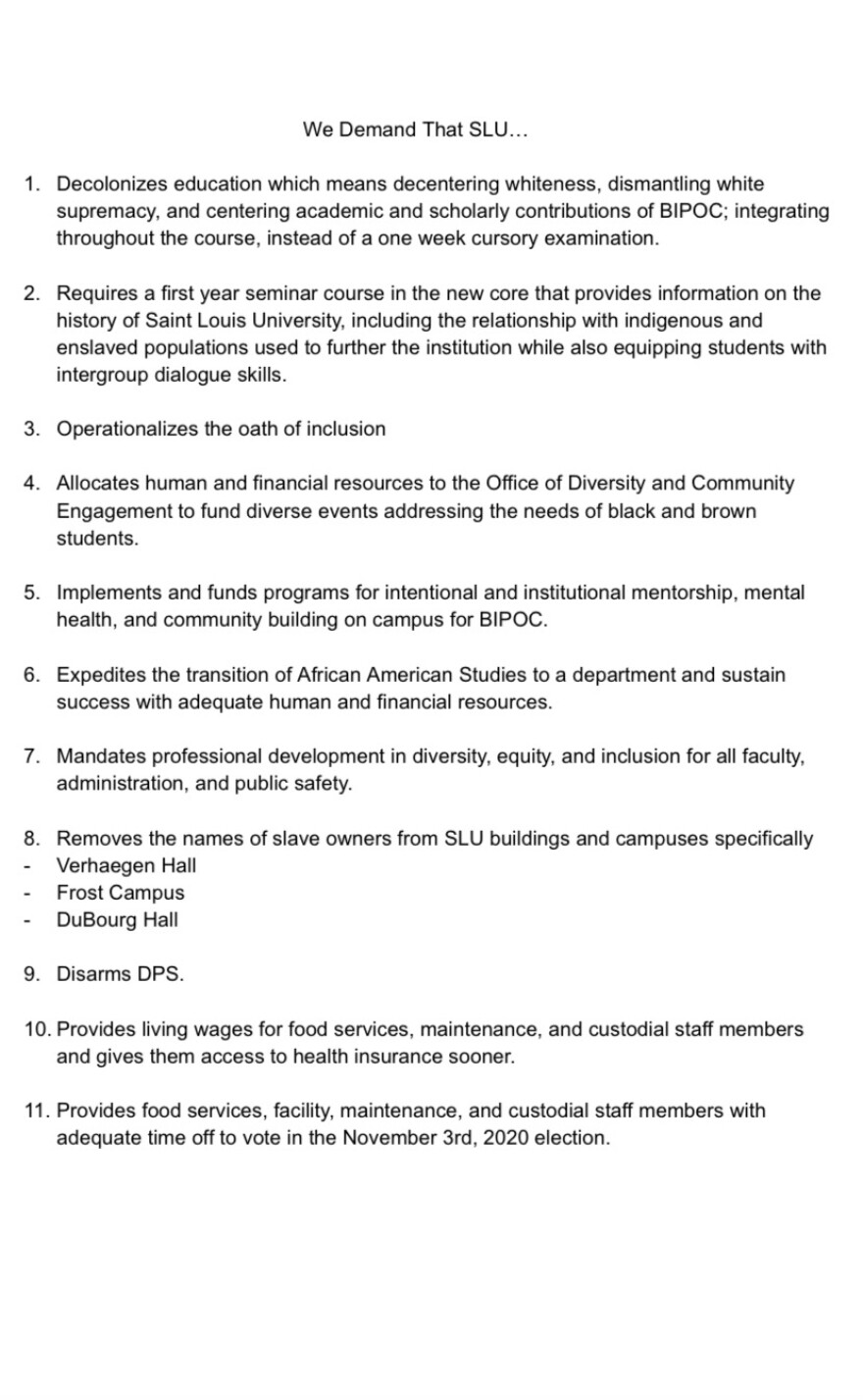St. Louis University graduate student Ashlee Lambert was distraught last Wednesday after learning that a Louisville grand jury did not indict three officers in the killing of Breonna Taylor.
The next day, Lambert took her pain to SLU’s Clock Tower and wrote Taylor’s name in chalk across sections of the tower. On Friday, Lambert, 21, heard that someone wrote over her chalk memorial with a permanent marker, blaming Taylor for her death.
Lambert grew so frustrated that she asked the students who were around the tower what they want the university to do to support students of color. Within hours, Lambert and a group of students presented a list of 11 demands to SLU officials calling for more mental health resources, disarming campus police and funding for diverse and inclusive events.

“At the end of the day, we need actions, we need something to be done about this,” Lambert said. “It’s not just about the chalk, it’s deeper than that, it’s the fact that these students think that they can do that and get away. It’s the fact that we deal with so much and that we don't have the support.”
They are also demanding that SLU give faculty diversity and inclusion training, create a department of African American studies and improve pay for maintenance, custodial and food service workers.
“We have a majority Black and brown staff here who work as cooks, who work as custodians, who work as the maintenance, and they deserve the same rights that everyone else does and they deserve to have the same equity that everyone else does in their position,” said Ryan Staples,18.
Students also want the university to rename Verhaegen Hall. It is named for a former SLU president, the Rev. Peter J. Verhaegen, a Jesuit who brought enslaved people to St. Louis in the 1800s. They want the university to rename Frost Campus, named for Confederate Gen. Daniel Frost. They also want SLU to change the name of Dubourg Hall, named for the school’s founder, Louis Guillaume Valentin Dubourg.
The student demands are similar to requests Black, faculty, staff, alumni and student organizations made this summer in response to the recent Black Lives Matter protests, said Jonathan Smith, SLU’s vice president of Diversity and Community Engagement.
“Our immediate response to that is we are including those in our consideration and conversation of all of those things that have been brought to us,” Smith said.
SLU President Fred Pestello and two other senior leaders met Wednesday with a few of the students who wrote the demands and discussed ways to address their concerns and introduce equity campuswide, especially for Black students, faculty and staff, Smith said.
The university is actively working to make the campus a more welcoming place for students of color. This year, SLU opened a space on campus for students of color where they can live and participate in activities that are culturally and socially welcoming, Smith said.
Staples said a lot of Black students feel helpless, but he is staying hopeful that Black students will see the change they have been calling for from SLU.
“I'm a first-year student, seven weeks in, and I'm already making change, and changes are happening,” Staples said. “At the end of the day, Black people aren't going to be the ones to change this issue, it comes from white students talking to white students, it comes from white people talking to white people.”
Follow Andrea on Twitter: @drebjournalist



